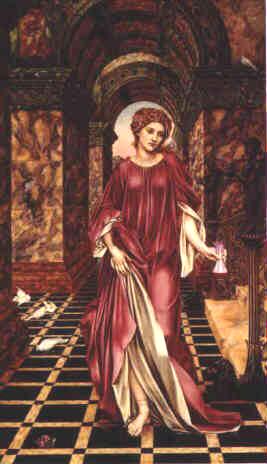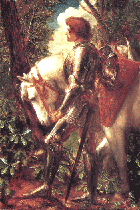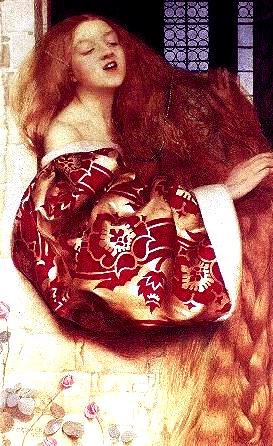Joan of Arc was a national heroine who turned the tide of the Hundred Years War in France's favour.
She was the daughter of a Domremy farmer named Jaques d'Arc and his wife Isabella Devouthen.
Joan was a pious child and she had her first vision when she was 13. She claimed that she heard the voice of God in her father's garden and over the next 5 years she was approached by St. Catherine, Margaret and Micheal the Archangel.
Northern France was presently occupied by Henry VI and his armies. Rheims, the traditional site of french coronations was also occupied. The voices that she had been hearing commanded her to liberate Rheims so the Dauphin Charles could be crowned.
Charles later became King Charles VII.
The English laid seige to Orleans in 1429 which prompted Joan to seek an urgent audience with Charles. She met privately with Charles for two hours. She told Charles that she was God's messenger and that he was the true heir to France, the Kings son.
Her claims were certified by the board of Roman Catholic Church theologians and she was sent to Tours to assemble an army. She arrived dressed in white men's armor and carring a sword emblazoned with five crossed and a banner with a painting of the king of heaven holding an orb.
Troups entered Orleans on April 30 and stormed the Bastille of Augustines where they capture Tourelles. It was there that Joan planted the first scaling ladder and was wounded in the shoulder. She later stood by Charles side as the Maid of Orleans crowned him King on July 14. She was later enobled on December 29 on recognition of what she had done for her country by following successful routes of the British.
When the British captured Compiegne in preparation to take Paris the following year, Joan mounted a campaign but failed and was taken prisoner. The English wanted to destroy her influence and discredit Charles. Joan was turned over to a court in Rouen for trial in January, 1431. The interrogation lasted for 14 months and Joan had been found guilty of 12 counts: her visions had been faked, her use of masculine dress had been censured, and, the most damning of all, her belief that she was directly responsible to God, not the church, was condemned as heresy. She was burned at the stake in the Old Market Square in Rouen on May 30.
She gazed intently at the cross she held in her hands as she was burned and cried out, "Jesus", as the flames engulfed her. The judgement that caused her death was annuled in 1456 and Joan was canonized by Pope Benedict in 1920.
She is now forever honored as the patron Saint of France.






